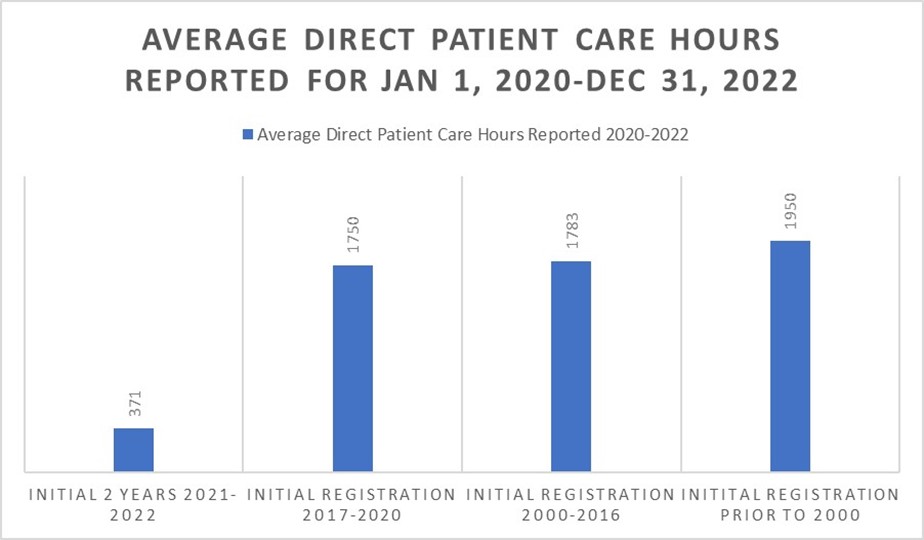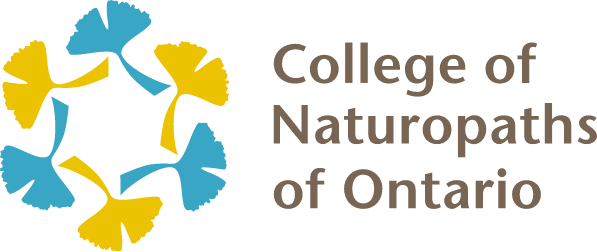Proposed Changes to the Registration Policy – Currency
Introduction
The Director, Registration & Examinations, on behalf of the Registration Committee of the College, is initiating a consultation relating to proposed changes to the College’s Registration Policy. The reasons for these proposed changes are set out below and in the attached compendium document.
This matter is under active consideration; however, no decisions have been made at this time. The College is seeking the feedback of its Registrants, system partners and the public.
This discussion paper is a part of the College’s augmented Consultation Program through which the College will actively engage stakeholders, system partners and Registrants on topics where future changes are being contemplated or presently being proposed.
Proposal
Section 6.(1) of Registration Regulation made under the Naturopathy Act, 2007 requires that every Registrant in the General Class practice the profession for a minimum of 750 hours over each three-year period, meaning that each year the College looks at a Registrant’s practise hours accrued over the preceding three-years. The intent of this provision in the Regulation is to ensure that Ontarians have access to safe, competent, and ethical care from Ontario’s Naturopathic Doctors, the primary mandate of the College. It accomplishes this by ensuring that Registrants practice naturopathy for a minimum amount of time to maintain the necessary clinical competencies, knowledge, skill and judgment for providing patient care.
In August 2023, the Registration Committee of the College undertook a review of the currency requirements set out in the Registration Policy, specifically those requirements related to direct patient care. This review took into consideration the following factors and information:
- the intent of subsection 6.(1) of the Registration Regulation for mitigating risk to the public from atrophy of knowledge and skill.
- the wide breadth of scope and the general practitioner role afforded to Ontario NDs in the General class.
- Registrant and staff feedback from the College’s audit of practise hours conducted in April 2023 which highlighted the need for clearer requirements related to direct patient care hours and acceptable evidence of currency.
- the currency provisions and direct patient care requirements of other Ontario regulatory health Colleges; and,
- any impact to other College operations (e.g., Quality Assurance) resulting from a lack of specified direct patient care hours within the Registration Policy’s currency requirements (e.g., Registrants being unable to produce a sufficient number of patient files for completing peer and practise assessments).
To ensure the intent of section 6.(1) of the Registration Regulation is clearly reflected in policy, changes to currency requirements are being proposed, as set out in the compendium document.
Current Information
The current Registration Policy of the College can be found on the College website for reference. The compendium document provided sets out only the portions of the policy where changes are being proposed. Sections of the policy not included in the compendium document are not being considered for change and are therefore not a part of this consultation.
Intent of this Change
Proposed amendments to the currency requirements set out it the Registration Policy aim to support the profession in understanding and meeting currency requirements, mitigate risk to the public by ensuring that Registrants in the General class, who do not have a non-clinical Term, Condition or Limitation on their certificate of registration, are current in their knowledge and skill for providing direct patient care, and assisting the College in carrying out its legislated obligations in the interest of public protection.
Impact on Registrants
In a random sampling of the College’s General class Registrants (with a minimum of 100 Registrants pulled for each group), Registrants reported on average having practised more than 1500 hours of direct patient care over the preceding 3-year period (2020-2022). New Registrants, who had not yet completed their initial three years of practise, reported on average 371 hours of direct patient care in their initial two years of practise time, as illustrated below.

Based on this sampling, it is not anticipated that Registrants will be unduly impacted by changes to currency requirements; however, to ensure Registrants are provided sufficient time to adjust their practice if needed, an onboarding provision for the integration of direct patient care hour requirements is also being proposed within the draft amendments. Finally, subsection 6.(2) of the Registration Regulation sets out the different options available to Registrants for remediating any practise hour deficiencies, e.g., completing a refresher program of training approved by the Registration Committee, which will remain unchanged.
Financial Impact on College
Most Registrants of the College will not be impacted financially by the proposed changes, with the exception of a) General class Registrants who are referred by the CEO (in accordance with 6.(2) of the Registration Regulation) for a peer and practice assessment, having failed to elect another option for remediating any deficit of direct patient care hours, the cost of which is borne by the Registrant and b) General class Registrants who elect to complete a refresher program of training, approved by the Registration Committee, to remediate any deficit of direct patient care hours, the cost of which will vary depending on the type of refresher training that is proposed by the Registrant and approved by the Committee.
Feedback
The College is seeking feedback from all stakeholders, including Registrants, the public, naturopathic organizations, and other regulatory bodies. Feedback must be provided in writing by way of written correspondence (letter or email) or through the College’s online submission form (see below for more details).
All feedback will be published by the College on the College’s website. Feedback from organizations will be published such that a reader can identify the individual; however, feedback from individuals within the profession or members of the public will be published without naming the individual.
Regardless, all feedback must include the name of the individual submitting the feedback for validity purposes. Anonymous submissions will not be considered and will not be retained by the College.
Feedback can be provided to the following addresses:
| Written correspondence by mail: | College of Naturopaths of Ontario 10 King Street East, Suite 1001 Toronto, ON M5C 1C3 |
| Written correspondence by facsimile: | (416) 583-6011 |
| Written correspondence by e-mail: | general@collegeofnaturopaths.on.ca |
| On-line form: | Currency Consultation 2023 Submission Form |
Instructions for Using the Online Submission Form
The online submission form for the College’s proposed by-law changes is an interactive and intuitive form. Before using this form, it is highly recommended that you review the proposed changes and make note of the areas where you wish to provide feedback. This will make the online submission process easier to use. The key questions are as follows:
| Identification | You will be required to provide your full name and email address, as well as the name of any organization you may be representing. Providing your telephone number is optional. |
| Sections | You will be asked to identify all sections on which you wish to provide feedback. This will alter the online form to allow feedback on those sections only. If you do not identify a specific section for feedback, the opportunity to speak to that section will not be included in the form. |
| Submission Copy | At the completion of the feedback form, you can request that the online system provide you with a copy of your submission by checking a box at the end. It is recommended that you check this box so you can recall the feedback that you have provided. |
| Published Summary | A summary of all feedback will be published on the College’s website. All information provided will be published as submitted. The College does not edit submissions prior to publication. Names, emails, and other identifying information will be redacted from the materials prior to publication unless you have identified that your submission is provided on behalf of an organization. |
Timeframe
The College will provide the opportunity for feedback that exceeds the mandatory 60-day timeframe set out in the Regulated Health Professions Act, 1991. Consultation will begin on or before October 30, 2023, and will conclude on or about January 31, 2024. This provides for a 91-day consultation period.
Information Sessions
The College will be conducting an information session on the proposed changes to the Registration policy. This session will enable attendees to hear the key elements of rationale for the proposed changes; however, it will not be a session to provide feedback. Feedback may only be provided in writing as noted above. To facilitate these sessions, an opportunity to submit questions is being provided using this online form.
Watch the Events Listing on the College’s home page for the dates and times of upcoming information sessions.
